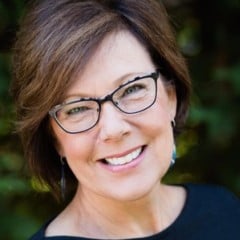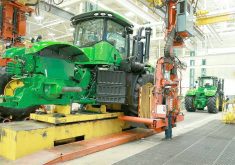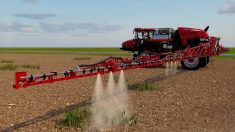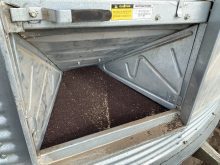straight from the hip Women asked to fill in online survey about their needs in agriculture
Women empowering women to grow food, protect environments, strengthen trade and secure financial independence for themselves, their families and their communities.” That’s the theme of a project for which I received a 2012 Nuffield Agricultural Scholarship for Canada. This fall I start with rural leadership meetings in Australia as well as with Meat and Livestock Australia, Cotton Australia and production tours on all crops before moving on to India, Turkey, Qatar, Ukraine and France as well as a visit to the United Nations in Geneva.
Next spring I leave again for New Zealand, Poland (land reforms), Geneva for followup meetings, the Netherlands, England and Ireland before making my way to every province across Canada. In total there will be a visit to 16 countries in 16 months.
Read Also

Farm equipment sales sector sees significant structural changes
Farming equipment sales have been declining for a number of years now, and one industry professional believes structural changes in the industry are needed to curb that trend.
The scope of the project is to develop mentorship programs specifically for women in agriculture and agribusiness. The outcome for Canada is the first national program of this type in the world. Although this project is gender specific, the benefits of mentorship have a family and community reach as women gain confidence and expertise in their chosen field.
Women constitute 53 per cent of the global agricultural workforce — in some areas that is up to 90 per cent. Today, more than 80 per cent of the food in our world is grown by women. Thirty per cent of rural households are headed by women, with 60-80 per cent of those solely responsible for all food production.
As an exploding population faces a global shortage of access to food created by an exploding population, women farmers, and indeed all farmers, will see unprecedented stress and challenges in the procurement and development of agricultural products.
A failure to improve infrastructure and address policies that enable women to access an equal level of education, technology, credit and land ownership has not prepared farming women for the current and future challenges of marketing and higher input costs. Indeed, women farmers in all cultures are facing increased stress without the support of systems that make much-needed capital or knowledge readily accessible.
More education — more food
Although consumers around the world are asking for a shorter link between the farmer and the fork, the political environment lacks an appreciation for this potential and fails to recognize that as resources for women increase, so does agricultural production.
As rural economies are drained, the role of women in agriculture takes on urgency. In March of 2011, Earth Times reported that “hungry people could be reduced by 150 million persons per year if women had the same access to land, technology, education, financial security and markets.” This call for gender equality resonates worldwide. The Dairy Women’s Network of New Zealand says that “Gender equality is not just a lofty idea. It is critical for agricultural development and food security.”
Although it would seem at first glance that inequality and a lack of access to resources is limited to developing countries, the United Nations gives a candid descriptive of farming women worldwide as “undervalued, underpaid and under-recognized.” Corporate agriculture also concedes that as we go forward the challenges will be in infrastructure and in land ownership. Without these critical points, the second of which is vital to women today, we will continue to see stress and strife in agricultural food production.
Interestingly, these issues for women farmers and women engaged in agriculture are not limited to a faraway place. Canada does not have designated assistance, mentorship or support for women farmers. A collective voice that represents and addresses the issues that are truly Canadian is silent.
Blanket statements regarding agriculture, farming or farming women are rarely valid. By working with and learning from women farmers at home and in different countries, one sifts out what can and will work and identifies pitfalls which may precede failure.
Canadian women own and operate 29 per cent of agricultural enterprises and they own 53 per cent of all small-medium businesses, which contribute $27 billion to the economy annually. In post-secondary institutions, women students are predominant and these women will be our future leaders. It is important now, today, that our future leaders have the tools they need.
As a national mentor myself through the Cattlemen Young Leaders Program, I can appreciate the value of mentorship to both mentor and mentee. Others recognize it too. The Conference Board of Canada has reported that it is not the glass ceiling that women hit in executive positions; it is the lack of mentorship and structure for women from women that often cripples advancement.
The World Bank Group recently identified gender equality as the key to stimulating economic growth. Yet governments struggle with the concept of ensuring food supplies through enabling policy regarding access to credit, education, tools, materials, technology, land ownership and the encouragement of gender equality for women in agriculture.
Despite the overwhelming evidence that addressing the issue provides sound economic foundations for men and women, boys and girls, for families, communities, regions and countries, we continue to watch women farmers struggle. Only when we empower these resourceful and committed women and provide for them an infrastructure which includes mentorship, can we hope to grow our economies.
I ask all Alberta women to contribute to this project by completing a short online survey about their needs in agriculture, specifically for mentorship. Please go to www.brendascho epp.com and let your voice be heard.















